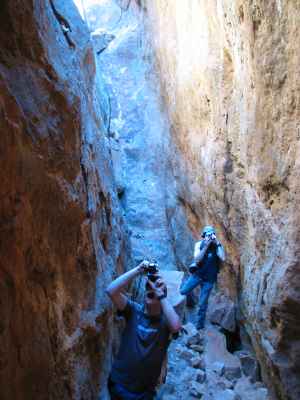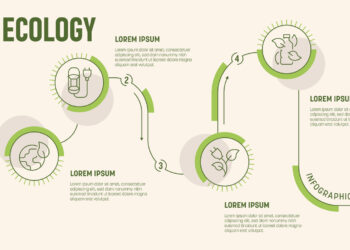
Yesterday, Nature published a rather bewildering editorial in the wake of last week’s public access memorandum from the Office of Science and Technology Policy (OSTP). The editorial argues that the OSTP recommendations represent a step backwards and cave to financial realities instead of courting open access (OA) idealism. The editorial also discusses accurately but blithely how Gold OA is facing travails in the UK, and seems coincident with the Nature Publishing Group announcing on the same day taking a majority position in a business venture that depends on Gold OA for its success.
But more confounding is that Nature seems to believe that Gold OA is the right thing to do, but did not announce a concomitant change in its own business model, despite that being well within its span of control:
As for Nature . . . for highly selective journals, fully funded gold open access is a scientific necessity.
There are two fundamental problems with the editorial in Nature.
First, the editorial claims Gold OA is the way to go, and then acknowledges that financial problems, implementation difficulties, legitimate concerns about rationing of funds for publication, and other problems exist, are real, and are emerging in front of our eyes.
Second, if Nature truly feels this is the way to go “for highly selective journals” and “is a scientific necessity,” then they are missing a true leadership moment. Why not announce that Nature will go to a Gold OA model starting in April? Why not put your money where your mouth is?
John Wilbanks was cheering the editorial yesterday:
Nature puts all their chips on gold. Bravo.
Unfortunately, Nature put no chips on Gold OA. The Nature Publishing Group put a few more chips on Gold, in a separate press release announcing a majority stake in Frontiers, but the selective, high-prestige journal Nature did not.
Nature’s bipolar relationship with OA isn’t new. Last year, Philip Campbell, Nature’s editor, was quoted as saying OA was “inevitable,” but in the same story had this classic passage:
You hear it said that the public has paid for it, the public should have access to it for free. At that point, I draw back and say, what do you mean by ‘it’? You mean something that has got quality in it, that has been selected and copy-edited. Somebody has got to do all that stuff, so the ‘it’ you want usually has involved somebody acting like a publisher to make it useable and comprehensible.
At the time, Campbell also pegged the APCs for Nature at well above US$10,000 at the time. Others have speculated that the costs may be as high as US$30,000.
The coincidental announcement that Nature Publishing Group has taken a majority interest in the OA publisher Frontiers gives the Nature editorial an unfortunate crass feel, as if its timing were meant to influence the environment to help ensure NPG’s investment wouldn’t go straight off the rails. Macmillan, the corporation that owns Nature Publishing Group, also owns Digital Science, a company positioned to take advantage of open data and free content. While smart business, it still seems as if the Nature editorial, by coming up short of walking the talk, is merely carrying water for its corporate masters.
The bigger financial picture is what we’ll need to be tracking over the next year or three to see if Gold OA is as feasible as some believe, and it’s not looking pretty. Government expenditures in science and technology are under pressure in most developed nations, with no major upswing on the horizon and manufactured crises in the US threatening R&D budgets and jobs. In this environment, policies like the RCUK’s Gold OA approach seem unlikely to move quickly into a pole position, and have already been delayed by years. Meanwhile, delayed OA of the kind the OSTP memo stipulates is both more practical and more politically savvy, which means it is more likely to succeed in the real world.
The lesson we may ultimately learn is that it was a mistake to ever believe these business models are mutually exclusive. Some Gold OA, continued subscriptions, some Green OA, and delayed OA may co-exist forever. As Holden Caulfield once cautioned about absolutism:
It’s partly true, too, but it isn’t all true. People always think something’s all true.
Discussion
4 Thoughts on "Putting Your Money Where Your Mouth Is — Is Gold OA Just a New Frontier for Nature?"
Are we about to experience deja vu? Or as Carlin said: vu jade when one know one is experiencing the same thing all over again.
APC’s will continue to increase, and at some point an author will shout: “Enough – I can’t take it anymore! Has anyone considered a subscription model?”
You know, I think this is perhaps the most important comment I’ve seen in awhile. The subscription model is comparatively benign, I believe, and seems amenable to delayed OA, as well, per the OSTP.
I think a more sane solution would be to separate out the notion of publication and selection. It is this that is broken. Publication, i.e. making publicly available, can actually be done very cheaply. arXiv does manages to do so for the cost of 1 issue of nature (if you believe NPGs figures). WordPress publishes millions of articles as a loss leader. Academics can make their work available at very, very low cost.
Quality judgements can then happen through aggregators, or overlay journals as we like to call them in academic publishing. As for the old copy-editing argument, if I want copy-editing then I can buy it. This is already an established practice for grant writing. Likewise, type-setting.



